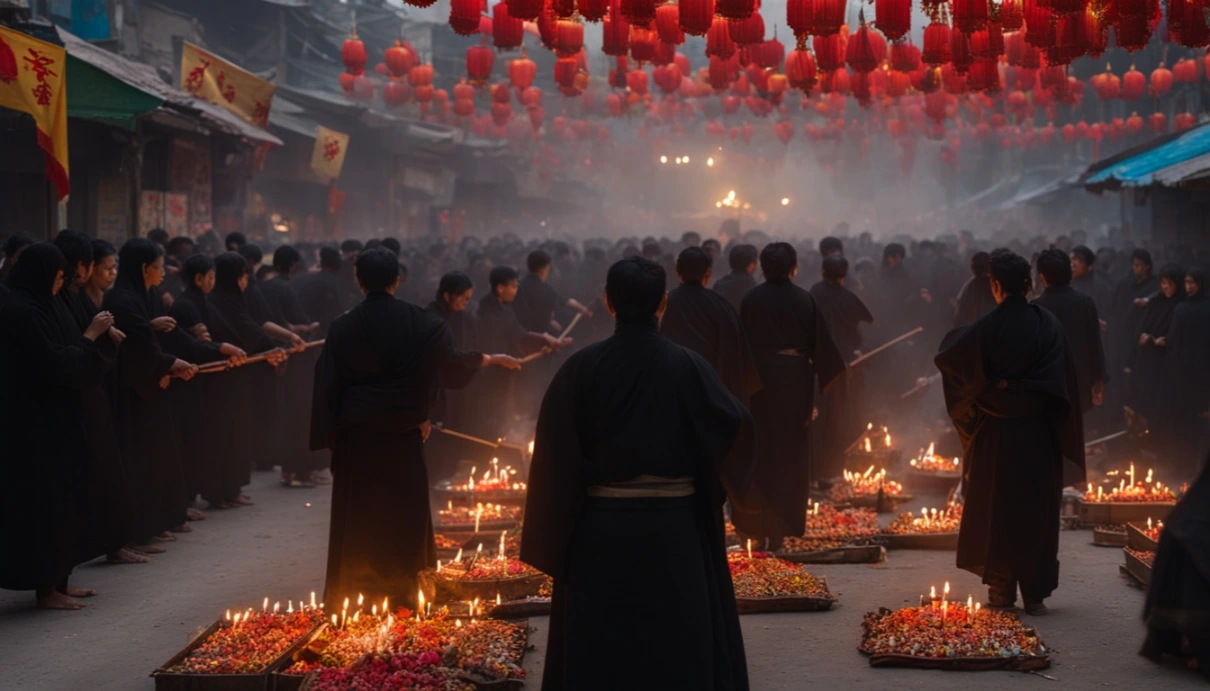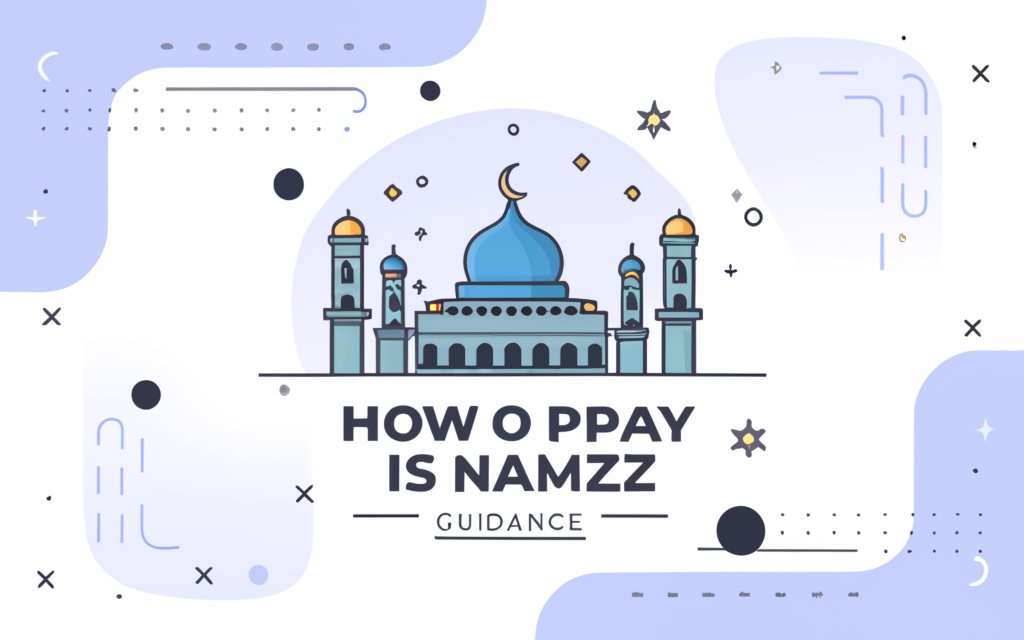Ashura is a key day in the Islamic calendar, important to Muslims worldwide. It honors a deep and moving history, dating back to the early days of Islam. This day is the second most important in the Shia tradition, celebrated with various rituals and traditions.
Ashura is a day of mourning and thinking, remembering Husayn ibn Ali, a grandchild of Prophet Muhammad. His death at the Battle of Karbala in 680 CE is a big part of Shia theology. It deeply moves believers. This piece will look into Ashura’s history, how it’s celebrated, and its importance today.
Key Takeaways
- Ashura is a sacred day in Islam, commemorating the martyrdom of Husayn ibn Ali at the Battle of Karbala.
- Ashura holds particular significance in Shia Islam, with observances and rituals that vary across different regions and communities.
- The historical origins and theological importance of Ashura are rooted in the early days of Islam and the events surrounding the death of Husayn.
- Ashura is marked by mourning processions, self-flagellation, and other rituals that reflect the solemnity and gravity of the occasion.
- In modern times, Ashura continues to hold relevance, serving as a reminder of the importance of sacrifice, resilience, and communal harmony.
What is Ashura and Why is it Celebrated?
Ashura is a key religious holiday for Muslims, especially Shia followers. It honors the death of Husayn ibn Ali, the Prophet Muhammad’s grandson. This day is for mourning, thinking deeply, and spiritual growth for many Muslims.
The name “Ashura” means “the tenth” in Arabic. It’s the 10th day of Muharram in the Islamic calendar. This day is crucial in Islam’s history and beliefs, marking a turning point in the faith.
The Ashura celebration honors the Battle of Karbala. This was where Husayn ibn Ali was killed by Yazid I’s forces in 680 CE. This event is a key moment in Shia Islamic history. Shia Muslims worldwide remember it with great sadness and respect.
“Ashura is a time for Muslims to reflect on the sacrifices made by Husayn ibn Ali and to renew their commitment to the principles of justice, compassion, and resistance against oppression.”
Ashura reminds Muslims of the need to stand up for their beliefs, even when it’s hard. It’s a day to mourn Husayn ibn Ali’s death. But it’s also a time to celebrate his bravery and sacrifice, which are key to Shia Muslim identity and beliefs.
Shia Muslims celebrate Ashura in many ways, like mourning processions and self-flagellation. This day has become a symbol of unity and solidarity among Muslims. They come together to honor Husayn ibn Ali and the values he represented.
Historical Origins and Significance
Ashura’s importance comes from the key events of the Battle of Karbala in 680 CE. This event in Islamic history saw the sad death of Husayn ibn Ali. He was the grandson of Prophet Muhammad, killed by Yazid I’s forces.
The Battle of Karbala
The Battle of Karbala was a key moment in Islam’s early days. Husayn ibn Ali, a respected figure in both Sunni and Shia Islam, didn’t agree to pledge to Yazid I. This led to a standoff in Karbala. Husayn and his small group were killed, changing the way people see Ashura.
The Martyrdom of Husayn ibn Ali
The death of Husayn ibn Ali is central to Ashura. He and his family and friends were brutally killed in battle. This event has been remembered by Muslims, especially Shia, for many years. The Ashura observance honors Husayn and his followers’ bravery and sacrifice.
The Battle of Karbala and Husayn’s death have made Ashura a key event in Islamic history. It still affects Muslims all over the world. It teaches them about the faith’s values of justice, resistance, and remembering the past.
“The blood of Husayn is fuel to the fire that burns in the hearts of the free.”
Observances and Rituals
Ashura is celebrated with many traditions and practices in Muslim communities. Ashura observances often include fasting, public processions, and reciting poetry to remember Husayn ibn Ali’s death.
One key Ashura ritual is self-flagellation. Some Shia Muslims hit their bodies with chains or other tools. This shows their sadness and support for Husayn and his friends.
- Fasting on the 10th of Muharram is a common Ashura practice for both Sunni and Shia Muslims.
- Public processions, known as Ashura observances, include carrying banners, chanting, and sometimes re-enacting the Battle of Karbala.
- Reciting poetry and elegies is a big part of Ashura. It helps remember and mourn Husayn’s death.
These Ashura observances and Ashura rituals honor Husayn and his friends. They also bring Muslims together, creating a sense of community and shared identity.
Ashura in Shia Islam
For Shia Muslims, Ashura is very important. It’s linked to their view of the Karbala tragedy and Husayn’s martyrdom. They celebrate Ashura with big mourning processions and rituals. These show their deep respect and sadness for Husayn.
Mourning Processions and Rituals
Shia Ashura rituals often include big processions. People show their mourning by hitting themselves, beating their chests, and other acts. These actions help Shia Muslims remember Husayn’s death and feel connected to his suffering.
Significance in Shia Theology
In Shia Ashura significance, the Karbala event is a key moment in Islam’s history. It shows the fight between right and wrong. Husayn’s death is seen as a brave act against wrongdoers. It shows the value of standing up for what’s right, even when it’s hard.
“Husayn’s sacrifice is revered as an act of defiance against tyranny and a testament to the importance of standing up for one’s principles, even in the face of overwhelming adversity.”
The Shia celebration of Ashura reminds us of the fight for justice. It teaches us to keep fighting for what’s right. It also reminds us to be brave, kind, and stand up against wrongs.
Ashura in Sunni Islam
Ashura is important for Shia Muslims, but it’s also significant for Sunni Muslims. Sunni Muslims have their own way of honoring this day. They show respect for this key event in Islamic history.
Sunni Muslims often celebrate Ashura with acts of devotion and charity. They don’t do the same rituals as Shia Muslims. Instead, they fast on the 10th of Muharram, the first month of the Islamic calendar.
- Sunni Muslims may fast for the whole day or just part of it. This is to honor the day Prophet Moses and the Israelites were freed from Pharaoh’s rule.
- They also recite Quranic verses and say extra prayers during Ashura.
- Feeding the poor and needy is encouraged. It’s a way to remember the event and show compassion and sacrifice.
Even though Sunni and Shia Muslims celebrate Ashura differently, they both deeply respect this important event. This shared respect unites the Islamic community.
| Sunni Ashura Observances | Shia Ashura Observances |
|---|---|
| Fasting, recitation of Quran, extra prayers, charitable acts | Mourning processions, self-flagellation, passion plays, communal gatherings |
“Ashura is a time for Sunni Muslims to reflect on the sacrifices made by the Prophets and to reaffirm their commitment to their faith and community.”
Regional and Cultural Variations
Ashura, a solemn event honoring Imam Husayn ibn Ali’s martyrdom, varies across the Muslim world. In South Asia, it blends with local traditions, creating a unique experience. This shows how different cultures add to the celebration.
Ashura in South Asia
In South Asia, Ashura mixes local culture with Islamic traditions. You’ll see colorful processions, emotional readings, and special foods. These activities highlight the mix of Islamic and regional customs.
Taziyahs, models of Imam Husayn’s shrine in Karbala, are a key part of South Asia’s Ashura. These detailed models are carried in parades. They help people connect with the story of Imam Husayn.
Matam, a form of self-flagellation, is also common during Ashura. It involves hitting the chest or back with chains or blades. This act shows deep sorrow and support for Imam Husayn and his family.
“The Ashura observances in South Asia are a vibrant tapestry of religious devotion and cultural expression, reflecting the region’s rich heritage and the resilience of the Muslim community.”
Even though Ashura is celebrated differently across South Asia, its core message stays the same. It honors Imam Husayn’s sacrifice. It also inspires us to fight for justice, equality, and against oppression.
Communal Harmony and Interfaith Understanding
Ashura is a key event in the Islamic calendar that can bridge gaps between different groups. It brings Shia and Sunni Muslims, along with people from other faiths, together. This shows how Ashura can help build unity and respect among people.
Ashura’s focus on sacrifice, compassion, and justice helps unite diverse communities. The story of Husayn ibn Ali’s martyrdom touches the hearts of many. It encourages people to stand up for what they believe, even when it’s hard.
In places like India, Pakistan, and Bangladesh, both Shia and Sunni Muslims, along with Hindus, Christians, and others, celebrate Ashura together. These events highlight how Ashura can foster Ashura communal harmony, Ashura interfaith understanding, and Ashura promoting unity.
“Ashura is a time when we come together as one community, regardless of our sectarian differences. It is a testament to the power of faith to transcend division and bring us closer together.”
– A local religious leader
Ashura’s universal themes, like fighting for justice and the value of self-sacrifice, help communities find common ground. This approach to celebrating Ashura can be a model for building Ashura communal harmony and Ashura interfaith understanding elsewhere.
As the world faces more division and religious conflicts, Ashura’s ability to unite people is a beacon of hope. By embracing Ashura’s spirit of unity, communities can bridge their differences. This can lead to a more just, peaceful, and united future.
Modern Interpretations and Relevance
The world faces many social, political, and religious challenges today. Ashura has changed to meet these issues. It now stands for sacrifice, justice, and fighting against oppression. This makes Ashura a key event for today’s world.
Ashura has become more important with global conflicts and social injustices. It symbolizes fighting against tyranny and stands for human rights. Many see Husayn ibn Ali’s story as a lesson to fight against wrongs and protect what’s right, even when it’s hard.
The Ashura event also reminds us of the need for unity, compassion, and working together across faiths. In a world that’s often divided, Ashura encourages us to understand and cooperate with each other. This message inspires both Muslims and non-Muslims to strive for a fair and peaceful world.
Ashura is changing, but it can still bring people together. It encourages dialogue, understanding, and positive change. By embracing Ashura‘s timeless values, we can find guidance in today’s complex world.
“The Ashura commemoration has become a powerful symbol of resistance against tyranny and a call for universal human rights.”
In conclusion, Ashura is still a key event in the modern world. It has a deep history and changing meanings. By learning from Ashura, we can find the courage to tackle today’s challenges. Together, we can aim for a fair, equal, and united global society.
Conclusion
Ashura is a key event in the Islamic calendar, important to Muslims everywhere. We’ve looked into its history, how it’s celebrated, and what it means today. It tells the story of Karbala and teaches us about sacrifice and spiritual growth.
People from all over the world observe Ashura in different ways. They hold mourning processions, do special rituals, or just think deeply about its meaning. Ashura shows how strong and united the Muslim faith is. It reminds us of the value of giving up things for others, being deeply devoted, and fighting for what’s right.
In wrapping up our look at Ashura, it’s clear this event deeply affects the Islamic faith and its followers. By learning from Ashura, Muslims find inspiration, comfort, and a stronger belief in their faith. This helps make the world a more peaceful and understanding place.
FAQ
What is Ashura and why is it celebrated?
Ashura is a key holiday for Muslims, especially Shia followers. It honors the death of Husayn ibn Ali, the Prophet Muhammad’s grandson. It’s a day of mourning and spiritual growth for many.
What is the historical significance of Ashura?
Ashura’s history goes back to the Battle of Karbala in 680 CE. Husayn ibn Ali and his followers died there at the hands of Yazid I’s forces. This event is crucial in Islamic history and shapes Ashura’s importance.
How is Ashura observed and celebrated?
People celebrate Ashura in many ways, depending on their community. They might fast, join processions, or recite poetry to remember Husayn’s death.
How does the observance of Ashura differ between Shia and Sunni Muslims?
For Shia Muslims, Ashura is very important. It’s linked to their beliefs about the Karbala tragedy and Husayn’s sacrifice. They have special mourning rituals. Sunni Muslims also observe it, but differently. They focus on fasting and doing good deeds, without the mourning seen in Shia traditions.
How do regional and cultural variations influence the observance of Ashura?
Ashura is celebrated differently around the world. In South Asia, for example, it blends with local customs, showing the diversity of Muslim practices.
How does Ashura promote communal harmony and interfaith understanding?
Ashura can bring people together, even across different Muslim groups and faiths. In some places, it’s celebrated by Shia, Sunni, and others, promoting respect and unity.
How is Ashura relevant in the modern world?
Today, Ashura’s meaning has grown to include fighting for justice and standing up against oppression. It’s seen as a powerful symbol for those facing challenges, making it still important today.










